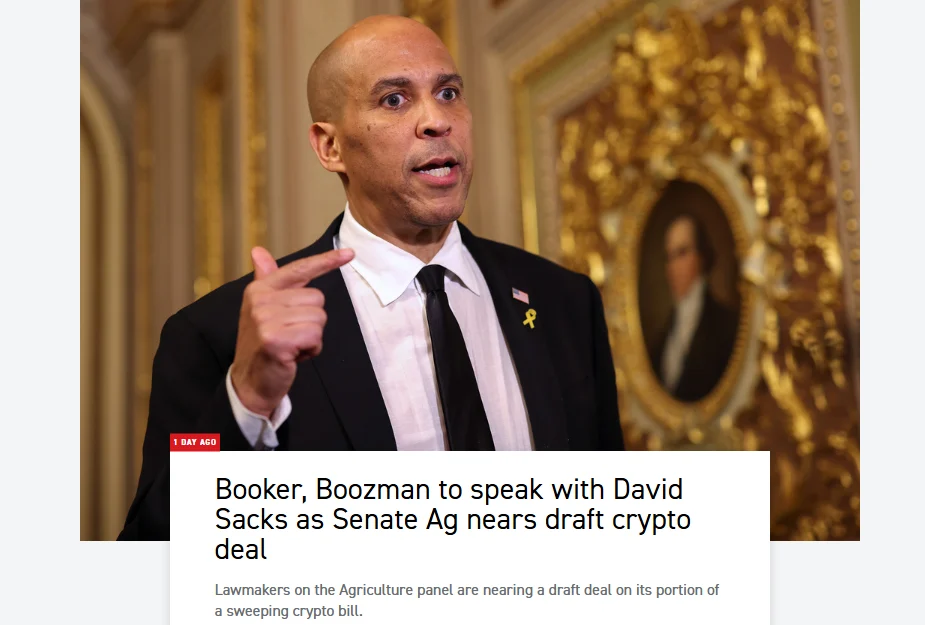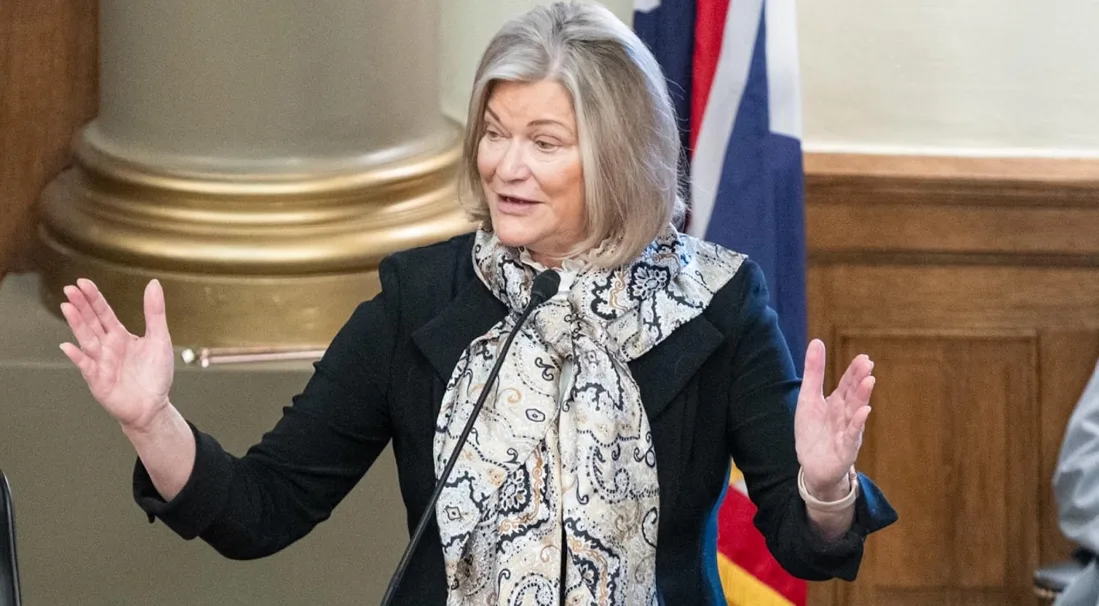Sen. John Boozman is expected to meet with White House crypto advisor David Sacks and Sen. Cory Booker to finalize a plan. Although there is still some optimism among sponsors like Sen. Cynthia Lummis, the legislative timeline is increasingly uncertain due to political gridlock. At the same time, the UK is moving to align its stablecoin regulations with those of the US, with Bank of England Deputy Governor Sarah Breeden confirming plans to publish a consultation paper on November 10.
Crypto bill back in focus?
Discussions on the long-awaited US digital asset bill on market structure continue despite the current government paralysis, which is the longest in the country’s history. The legislation is widely considered one of the most consequential efforts to define the regulatory framework for cryptocurrencies, but it is still in limbo as lawmakers juggle competing priorities and political tensions.
According to a Politico reportSen. John Boozman, a Republican member of the Senate Agriculture Committee, is expected to speak with the White House crypto and AI adviser. David Sacks and Democratic Sen. Cory Booker to help finalize a discussion draft of the bill. The Agriculture Committee, along with the Senate Banking Committee, plays a key role in crafting the bill before it can move to a full Senate vote.
Politico Report
The bill was initially passed by the House of Representatives in July and was expected to pass the Senate with bipartisan support. However, progress has been slowed by disagreements over how decentralized finance (DeFi) protocols should be regulated, alongside the disruption caused by the government shutdown.
Many lawmakers have focused on reopening the government and restoring operations of key financial regulators, including the Securities and Exchange Commission (SEC) and the Commodity Futures Trading Commission (CFTC), both of which have been forced to scale back operations due to staffing issues.
Despite the delay, several senators remain optimistic. Senator Cynthia Lummis of Wyoming, who is a co-sponsor of the bill, told Bloomberg that bipartisan negotiations are ongoing and productive. “We are working every day at the staff level to get the necessary votes in committee,” she said, calling the talks “granular” but “extremely” progressive.
Senator Cynthia Lummis
However, the timetable seems increasingly uncertain. Senator Thom Tillis recently warned that the legislators have only until early 2026 Passing meaningful crypto legislation before the 2026 midterm election cycle complicates the process. Patrick Wittexecutive director of President Donald Trump’s Council of Digital Asset Advisors, acknowledged that the shutdown created both challenges and opportunities. Although lawmakers have more time to discuss the bill, the absence of agency staff has deprived them of critical technical input.
As political divisions harden and the shutdown drags on, the path forward for the Digital Asset Market Structure Bill is unclear.
UK aligns with US on stablecoin policy
In the meantime, Bank of England Deputy Governor Sarah Breeden said the United Kingdom intends to act at the same pace as the United States stablecoin regulationdue to the importance of alignment between the two countries in developing rules for the $310 billion sector.
At the SALT conference in London on Wednesday, Breeden said the United Kingdom will implement its stable coin regulatory framework “as fast as the US” and allayed fears that Britain would fall behind after the US passed its target. GENIUS Law in July. She added that the Bank of England was in active discussions with the Federal Reserve and other US financial authorities as it prepared to publish its own consultation paper on stablecoins on November 10.
“I talked to the Federal Reserve,” Breeden said. “The regulators there and our finance ministries work together. » His remarks once again highlighted the growing transatlantic cooperation on digital asset oversight, previously discussed at a press conference. September meeting between British Chancellor Rachel Reeves and the American Secretary of the Treasury Scott Bessent. The two officials agreed to deepen their collaboration on the regulation of cryptocurrencies and stablecoins.
Breeden’s comments came amid growing pressure from UK crypto advocacy groups who have criticized the government’s cautious stance and argued it has hampered innovation and left the country lagging behind its global peers. The Bank of England also faces backlash For propose ceilings on individual stablecoin holdings of between £10,000 and £20,000, which lobby groups say would be costly and difficult to enforce.
The UK’s renewed focus on stablecoins is also similar to developments in Canadawhere the government this week announced plans to regulate issuers backed by fiat currencies, requiring adequate reserves and robust risk management frameworks as part of its modernization of the country’s payments system.
Meanwhile, institutional adoption of stablecoins continues to gain momentum, with major financial players such as Western Union, SWIFT, MoneyGram, and Zelle integrating or exploring stablecoin-based payment systems.






